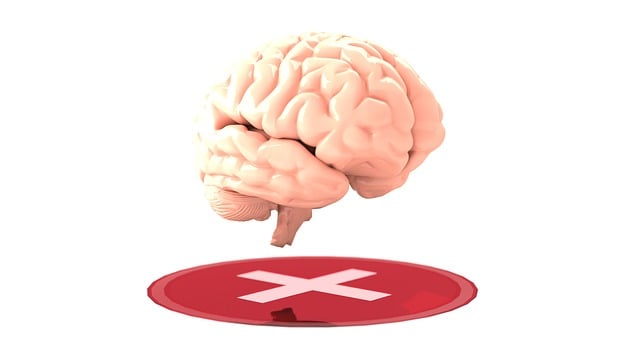The text emphasizes the severe impact of mental illness stigma, particularly on sexual addiction, leading to isolation and poor well-being. It highlights the role of specialized services like Littleton Sexual Addiction Therapy in dismantling stereotypes through tailored therapy, education, and open dialogues. The importance of mental health education in schools and communities is underscored, empowering students to recognize distress signals and support themselves and peers. LSAT's comprehensive approach, including podcasts and compassion cultivation, humanizes sexual addiction and fosters effective recovery. Community engagement and advocacy, led by organizations like Littleton Sexual Addiction Therapy, break down stigma barriers through education and support networks, encouraging help-seeking in a compassionate environment.
Mental illness stigma remains a significant barrier to treatment, with widespread misconceptions perpetuating isolation and discrimination. This article explores comprehensive strategies to reduce this stigma, from understanding its historical roots and profound impact on individuals’ lives to innovative approaches like Littleton Sexual Addiction Therapy, which targets specific interventions. We delve into the power of education, effective awareness campaigns, community engagement, and advocacy as key components in building a more supportive and inclusive society for those facing mental health challenges.
- Understanding the Stigma of Mental Illness: Its Roots and Impact
- The Role of Education in Breaking Down Stigma
- Effective Strategies for Promoting Mental Health Awareness
- Littleton Sexual Addiction Therapy: A Case Study on Targeted Interventions
- Community Engagement and Advocacy: Building a Supportive Network
Understanding the Stigma of Mental Illness: Its Roots and Impact

The stigma surrounding mental illness is a pervasive issue that often prevents individuals from seeking help and support. This societal shame, deeply rooted in historical perceptions and misinformation, has significant consequences for those affected. Many people struggle silently, facing discrimination and misunderstanding, which can lead to isolation and a decline in overall well-being. The impact extends beyond the individual, creating barriers within families, communities, and workplaces.
Littleton Sexual Addiction Therapy, among other specialized services, plays a crucial role in dismantling these stereotypes. By offering emotional healing processes tailored to specific needs, therapists facilitate open conversations about mental health. Encouraging individuals to maintain a mental wellness journal as a form of self-reflection and expression can be transformative. This practice allows for the exploration of thoughts and emotions, fostering personal growth and building resilience. Additionally, confidence-boosting exercises are essential tools to counteract the negative self-perception often associated with mental illness, empowering individuals to embrace their journey towards recovery.
The Role of Education in Breaking Down Stigma

Education plays a pivotal role in breaking down the stigma surrounding mental illness, including conditions like sexual addiction. By integrating comprehensive mental health education into schools and communities, we can foster a culture of understanding and empathy. Teaching students about various aspects of mental health, such as recognizing signs of distress, promoting coping skills development, and discussing strategies for burnout prevention, equips them with the knowledge to support themselves and their peers.
This educational approach extends beyond the classroom. Community workshops and programs led by professionals like those at Littleton Sexual Addiction Therapy can provide practical insights into specific issues, like sexual addiction and its impact on individuals and relationships. These sessions often include conflict resolution techniques, helping participants navigate challenging conversations and build healthier interactions. Through open dialogue and shared understanding, we can dismantle the barriers created by stigma, encouraging help-seeking behaviors and supportive environments for those struggling with mental health challenges.
Effective Strategies for Promoting Mental Health Awareness

Mental health awareness is a crucial aspect of reducing stigma surrounding mental illness. Effective strategies include education and open dialogue. By integrating Littleton Sexual Addiction Therapy and other specialized treatments, communities can foster understanding and empathy. These approaches not only help individuals struggling with specific issues but also contribute to a broader culture that values and prioritizes emotional well-being promotion techniques. Public forums, school programs, and media representation play significant roles in disseminating accurate information about mental health conditions, challenging stereotypes, and encouraging support-seeking behaviors.
Moreover, risk management planning for mental health professionals is essential to ensure a safe and supportive environment. This includes training practitioners on how to recognize and address their own biases as well as those of their clients. By adopting evidence-based practices and staying updated with the latest research, professionals can provide effective care while minimizing potential risks. Such efforts collectively contribute to breaking down barriers and promoting a more inclusive society that supports individuals navigating mental health challenges.
Littleton Sexual Addiction Therapy: A Case Study on Targeted Interventions

Littleton Sexual Addiction Therapy (LSAT) is a groundbreaking initiative that offers a unique and targeted intervention for individuals struggling with sexual addiction. This therapy model has gained recognition for its comprehensive approach, combining psychological treatments, education, and support groups to address the complex nature of sexual addiction. By focusing on specific behaviors and underlying triggers, LSAT aims to empower clients to regain control of their lives and foster positive changes.
The program’s success lies in its ability to humanize and destigmatize sexual addiction within a safe and non-judgmental environment. Through the Mental Wellness Podcast Series Production, LSAT shares real-life stories and expert insights, fostering open conversations about this often-misunderstood condition. Additionally, incorporating practices like compassion cultivation encourages participants to cultivate self-mercy, which is vital for long-term recovery. This case study demonstrates that tailored interventions can significantly contribute to mental wellness, offering hope and effective tools to combat the harmful effects of sexual addiction.
Community Engagement and Advocacy: Building a Supportive Network

Community engagement is a powerful tool in the fight against mental illness stigma. By fostering open conversations and educational initiatives, organizations like Littleton Sexual Addiction Therapy can break down barriers and create a supportive network. Encouraging self-awareness exercises and resilience building within communities helps individuals understand mental health challenges better and promotes empathy. This collective effort not only reduces stigma but also enhances risk management planning for mental health professionals, ensuring a more compassionate and informed support system.
Advocacy plays a crucial role in this process. Community members equipped with knowledge about various mental health conditions can become powerful advocates, challenging societal norms and promoting understanding. Through collaborative efforts, resilience is built collectively, strengthening the fabric of support available to those facing mental illness. This inclusive approach fosters an environment where everyone feels empowered to seek help and offer support, mirroring the ethos of Littleton Sexual Addiction Therapy in their mission to provide holistic therapy solutions.
Mental illness stigma reduction is a multifaceted approach that combines education, awareness, and targeted interventions. As seen in the case study of Littleton Sexual Addiction Therapy, tailored programs can significantly impact challenging issues like sexual addiction. By fostering community engagement and advocacy, we build supportive networks that enhance understanding and reduce judgment. Through comprehensive strategies, we can create an environment where individuals with mental health concerns feel empowered to seek help without fear of stigma, ultimately improving overall well-being.














